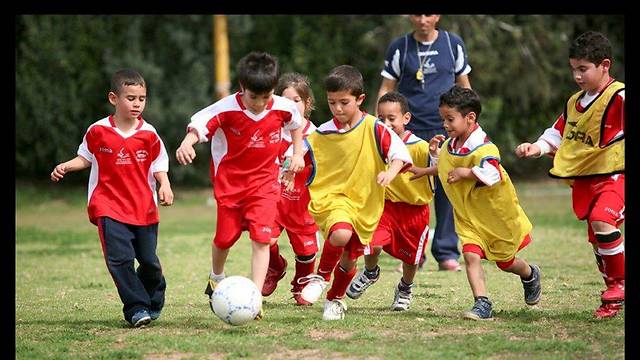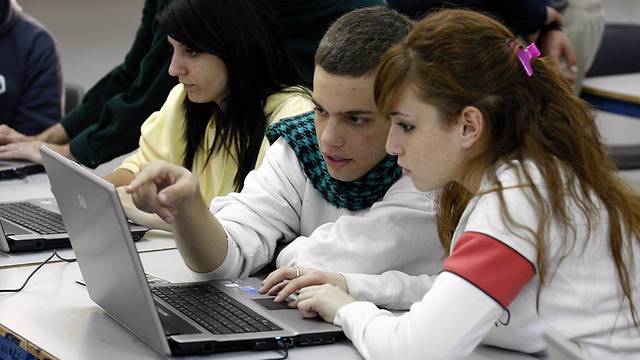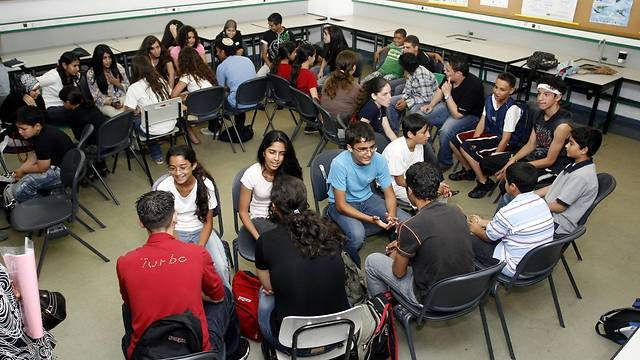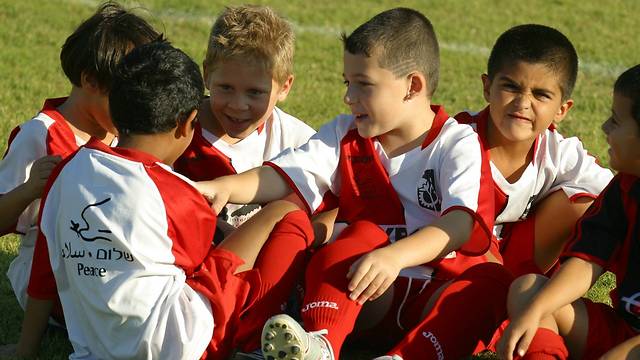
Peace education programs thrive amid violence
Peres Center for Peace reports increase in demand for joint Jewish and Arab educational programs amid concerns that recent wave of terror may lead to rift in Israeli society.
The escalating wave of violence Israel has been hit with in recent weeks, which ratcheted up tensions between the country's Arab and Jewish populations, managed to spur an interesting counter movement leading to a spike in requests for "peace-related materials" for both Jewish and Arab schools.
While incitement spreads like wildfire on social media, and Jews and Arabs seem to be drifting further apart, the phone at the Peres Center for Peace has been ringing off the hook.
Schools, youth groups, individuals, and other organizations from across the socio-political spectrum have been seeking programs and teaching materials from the center's peace education department, in an effort to halt the societal fray.
"We are getting calls from people who have never approached us before," Sivan Hendel, the director of the peace education department at the peres center for peace, told Ynetnews.
"They are searching for lesson plans and reading materials that promote peace to use with their students, who remain hopeful and optimistic despite the tension around them," Hendel said.
The center produces special reading materials and lesson plans for educators, and organizes a variety of different programs, including a cooperative program titled "Bridges for Peace," and the Twinned Peace Sport School (TPSS) - where Israeli and Palestinian children learn to play soccer together.
"Bridges for Peace" is a program which features the cooperation of the ORT Israel school chain, Google Israel, and the Peres Center. About 500 students, Jews and Arabs, take part in the program, alongside teachers who receive special training at the center.
Participants in the program meet both in person and through Google Hangouts and work together towards a joint final project. According to the Peres Center, the goal of the program is for the students to take their experiences and share them with their parents and the community at large.
Another one of the center's programs, the TPSS, or sports school, is a central program at the center. TPSS is also a fan favorite with the kids. The program aims to teach children from different backgrounds how to play together as friends rather than opponents.
The teams come from their home communities but are merged during matches, where coaches teach the children how to share the ball, and play together as a team. All the teams are made up of players from different backgrounds, and games are held in different cities. The program also features language lessons, where Jewish players study Arabic and Arab players study Hebrew. TPSS was recently nominated for the Beyond Sports Organization's conflict resolution prize in London.
The programs are part of a proven methodology that has been developed over time by the center, Hendel says.
"We have gotten calls from teachers and principals from Kfar Yona to Abu Gosh. Educators have learned from history that they are the ones who can truly influence reality," she said.
That’s not to say that the situation is perfect. The recent wave of terror in Israel has naturally sparked concern among parents. But according to the center, the programs are still thriving, even in the most difficult of environments.
"The Peres Center for Peace remains hopeful that by establishing friendships and breaking barriers, the programs will lead people to share peace, combat negativity, and prevent the spreading of hatred and prejudice," Hendel concluded.














